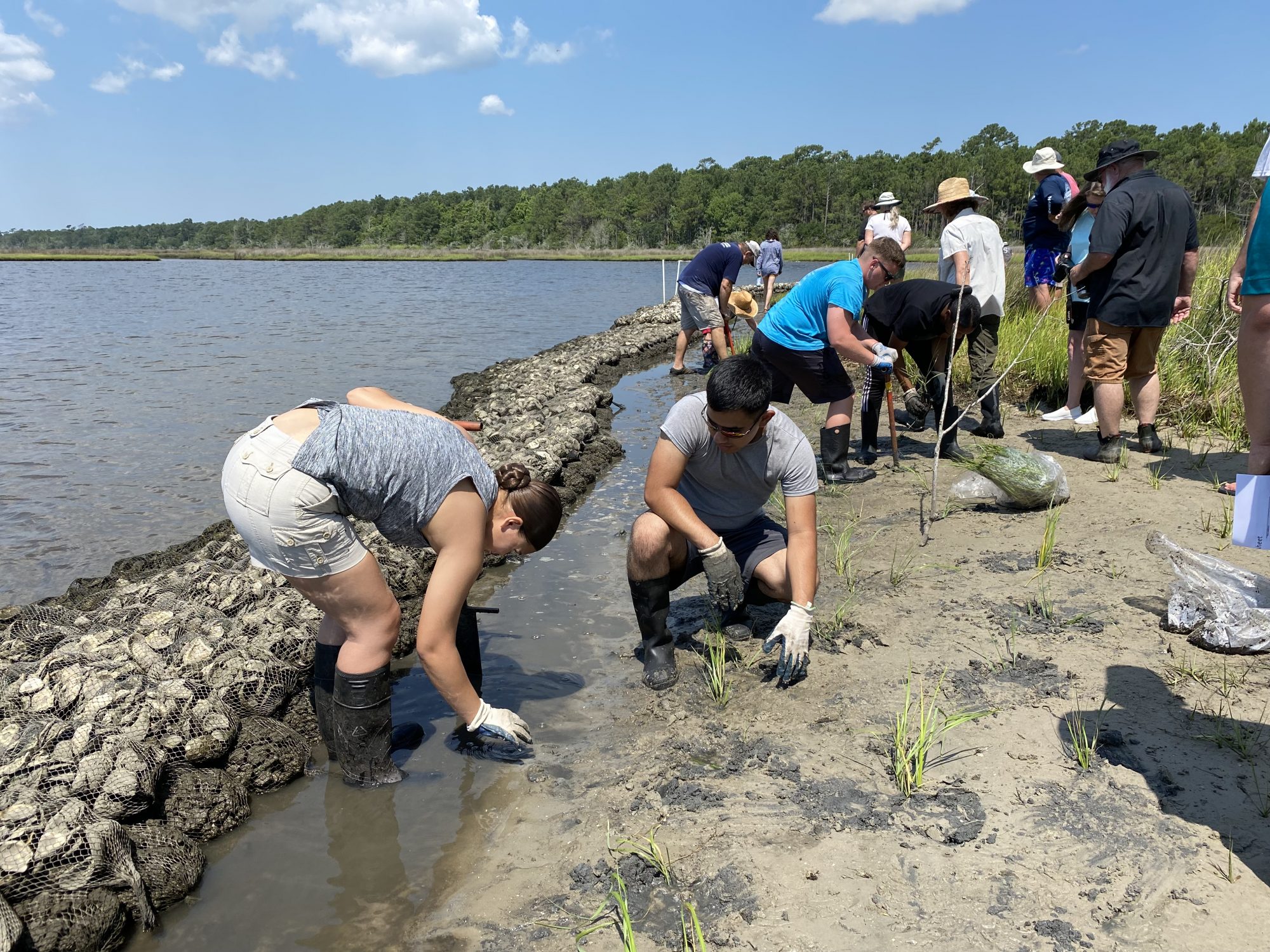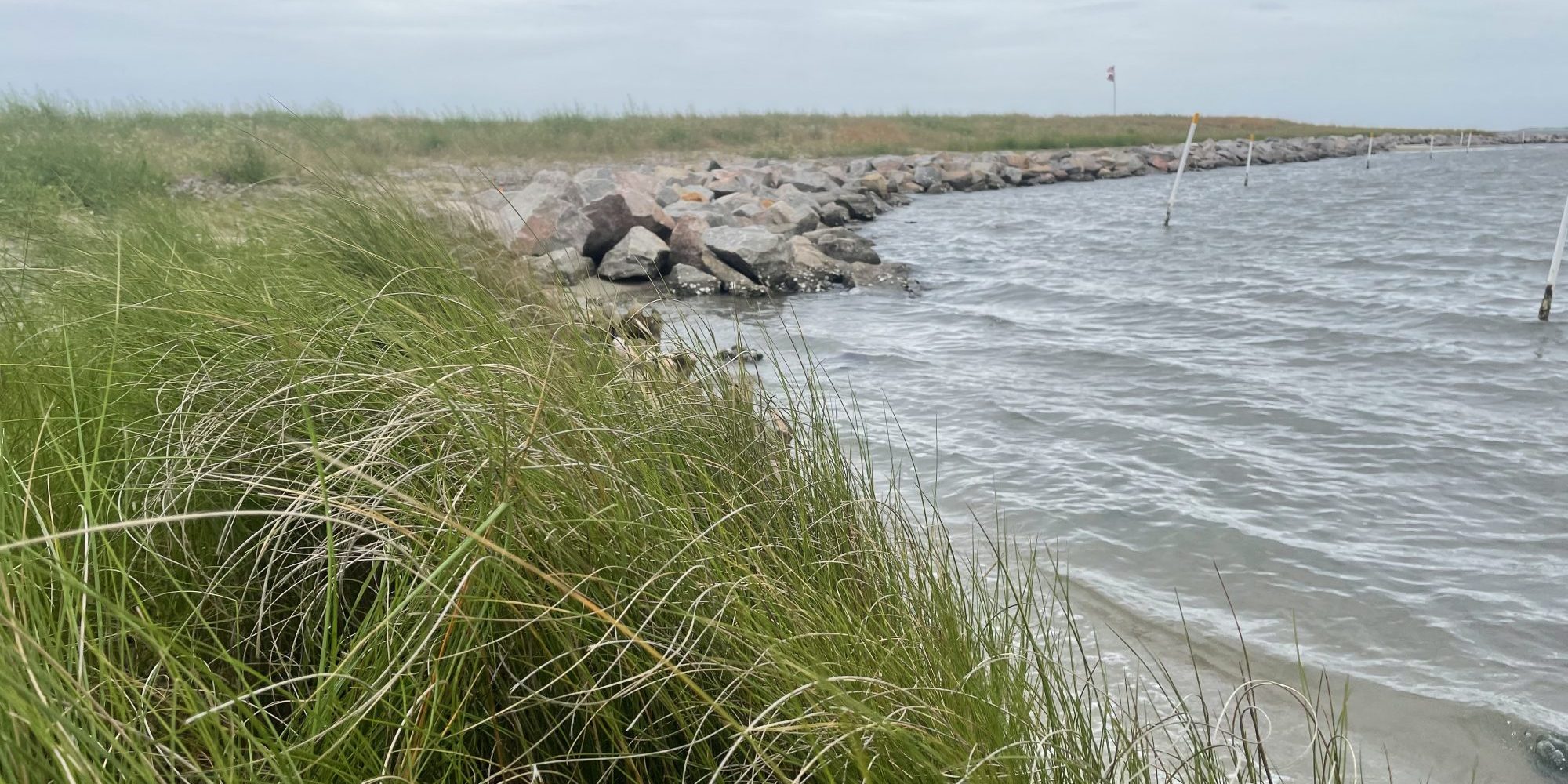Presented by the N.C. Coastal Reserve & National Estuarine Research Reserve, the North Carolina Coastal Federation and Sea Grant.

The Importance of Education
This is an important time to raise the awareness of those who live and work along NC’s coast about resilience measures such as living shorelines. Living Shorelines have proven to be effective in protecting our coastal communities from the impacts of frequent hurricanes, coastal storms, boat wakes, and climate change. Thanks to ongoing research by scientists at UNC-Chapel Hill and other leading universities, the outstanding performance of living shorelines to create habitat, stabilize the coastal property, and withstand storms is now well-documented in our state.
In 2019, the permitting process for living shorelines less than 500 feet was simplified through the amendment to the General Permit for the construction of marsh sills. This advancement took the permitting process from a labor-intensive, 150-day bureaucratic labyrinth to a short and simple process that now allows the receipt of permits within a week. This removed the biggest obstacle to installing a living shoreline in North Carolina and created a huge opportunity to promote this option to property owners and ensure there are coastal professionals trained to design, permit, and construct these projects. Each time a property owner in North Carolina installs a living shoreline, it improves the resilience of our coast by improving water quality, reducing erosion, and restoring habitats that are adapted to withstand hurricanes and other coastal processes.
Pilot Training
In partnership with the National Estuarine Research Reserve Program (within the N.C. Division of Coastal Management), the Federation organized and held a pilot virtual and field training course for professionals on living shorelines. Marine contractors, consultants, engineers, landscape architects, agency representatives, and other professionals attended the training.
Downloads
- Living Shoreline Training Manual
- Living Shoreline Training Agenda
- Living Shorelines Engineering Guidelines
- Florida Fish & Wildlife Conservation Commission – Living Shoreline Training for Marine Contractors
- BioScience Advance Access – Ecological Consequences of Shoreline Hardening: A Meta-Analysis
- NOAA – Guidance for Considering the Use of Living Shorelines
- William and Mary – Living Shoreline Design Guidelines for Shore Protection in Virginia’s Estuarine Environment




